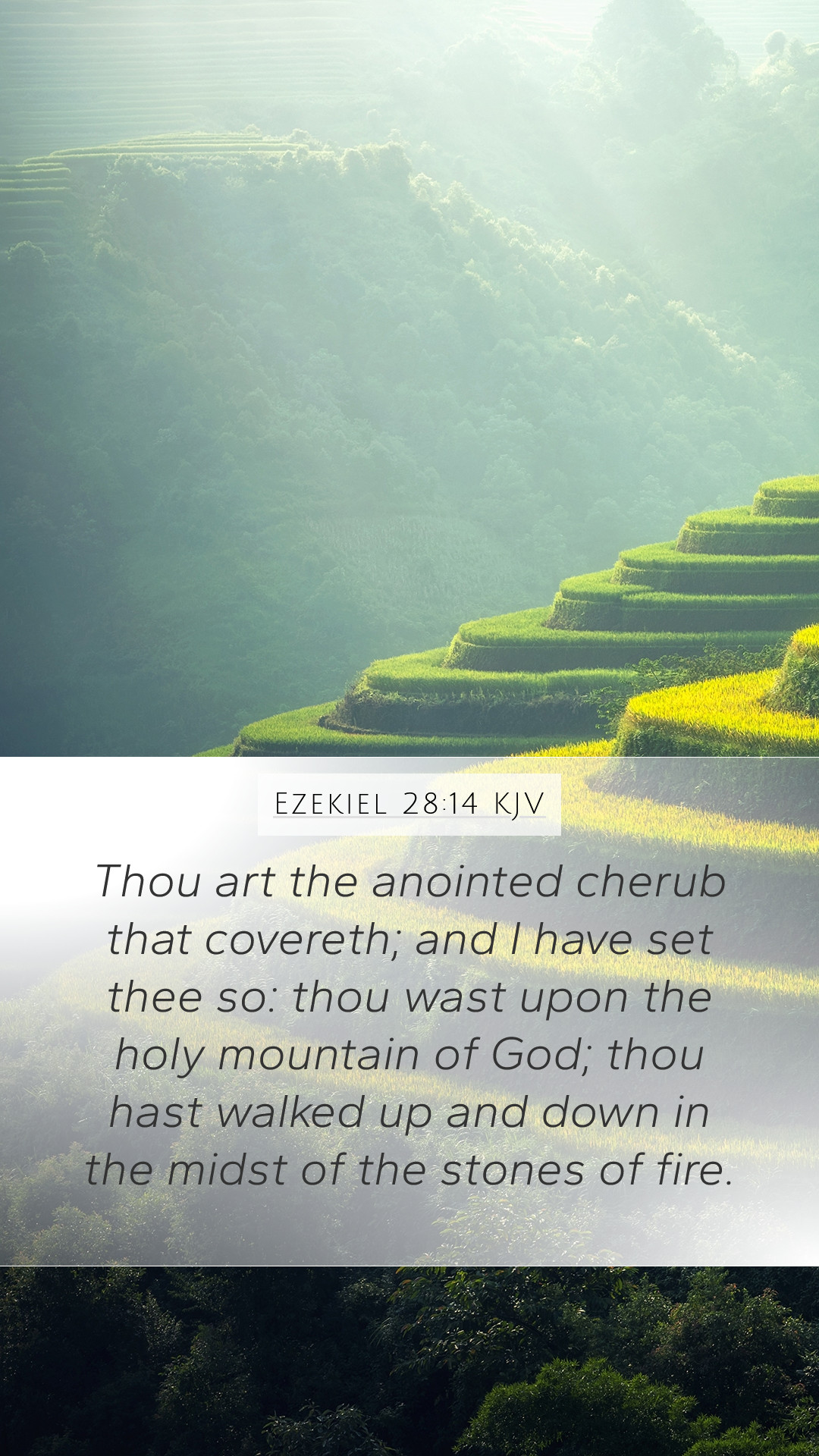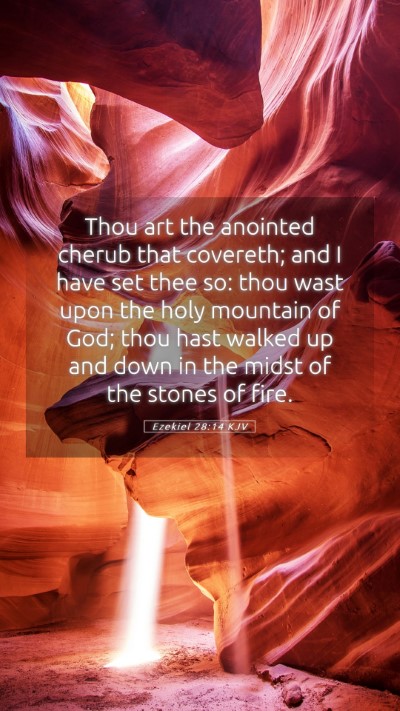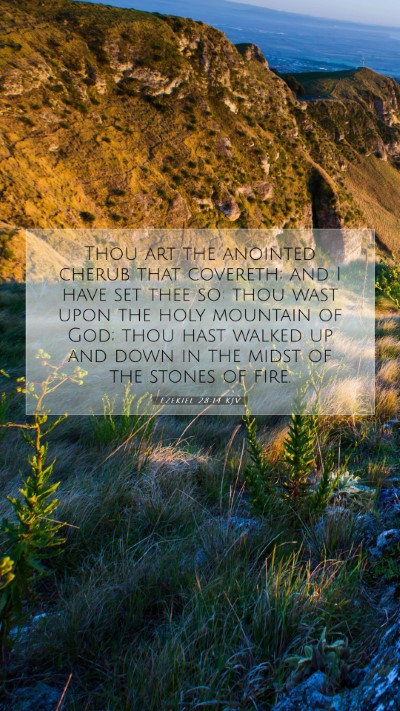Understanding Ezekiel 28:14
This guide provides a comprehensive exploration of Ezekiel 28:14, drawing from the insights of renowned public domain commentaries, including those by Matthew Henry, Albert Barnes, and Adam Clarke. The goal is to enhance Bible verse understanding and offer tools for deeper Bible study.
Verse Text
Ezekiel 28:14: "Thou art the anointed cherub that covereth; and I have set thee so: thou wast upon the holy mountain of God; thou hast walked up and down in the midst of the stones of fire."
Historical Context
This verse is part of a prophetic judgment against the King of Tyre, often seen as a dual reference to both the ruler and a spiritual being, often interpreted as referring to Satan. Understanding the historical context gives us insight into the themes of power, pride, and ultimate downfall due to rebellion against God.
Interpretation Insights
- Matthew Henry's Commentary: Henry emphasizes the paradox of the King of Tyre's elevation and subsequent fall. He describes the "anointed cherub" as a symbol of high status and divine protection that was misused for pride and self-exaltation.
- Albert Barnes' Notes: Barnes observes that the term "cherub" implies a special order of angels, denoting both admiration and authority granted by God. His fall is a cautionary tale, highlighting how power can lead to pride, and pride often leads to destruction.
- Adam Clarke's Commentary: Clarke focuses on the 'holy mountain of God' as a representation of divine presence and the intimate relationship intended between God and His creation. This relationship is shattered by disobedience, leading to exile and judgment.
Thematic Analysis
Ezekiel 28:14 encapsulates themes central to biblical theology:
- Divine Authority: Demonstrates God's sovereignty over all creation, including angels, emphasizing that even the highest beings can fall from grace.
- Pride and Fall: The verse reflects the biblical principle that pride precedes destruction, echoing similar warnings in other scripture passages.
- Restoration and Judgment: It highlights the eventual judgment of those who rebel against God, serving as a warning to both rulers and believers.
Applying the Verse
In applying the meanings derived from Ezekiel 28:14, believers are encouraged to reflect on their relationship with God, examine their hearts for any pride, and understand their roles as stewards of divine authority.
Cross References
This verse is related to several other key biblical passages:
- Isaiah 14:12-15: Discusses the fall of Lucifer, paralleling themes of pride and judgment.
- Revelation 12:7-9: Details the war in heaven and the expulsion of Satan, echoing the consequences of pride.
- Genesis 3:1-5: Highlights the original sin due to deception and pride, leading to downfall.
Conclusion
Ezekiel 28:14 serves as a profound reminder of the consequences of pride and the importance of humility in our relationship with God. The insights gained from this verse contribute significantly to our understanding of scripture, enhancing Bible study insights for individuals and groups alike.
Further Study Suggestions
- Engage in online Bible study sessions to explore the thematic elements of pride in more depth.
- Utilize Bible study tools to cross-reference related passages effectively.
- Join Bible study groups for shared insights and community understanding of complex scripture.
Reflection Questions
- What personal pride might be hindering your relationship with God?
- How can you apply the lessons from this verse in your daily life?
- In what ways can understanding past rebellions encourage present humility?


